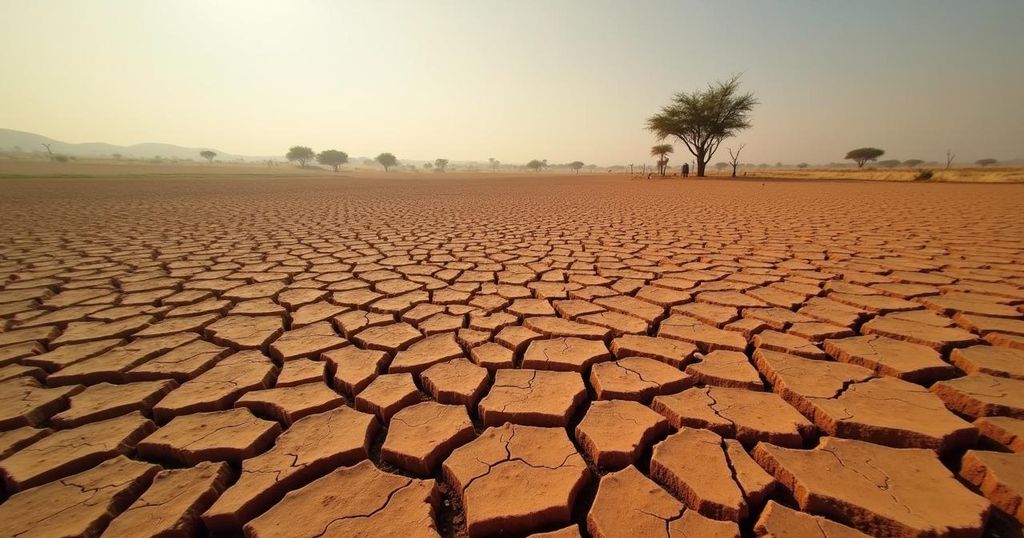Southern Africa Faces Humanitarian Crisis Amidst Century’s Worst Drought
Southern Africa is experiencing the worst drought in a century, affecting over 27 million people, with 21 million children facing malnutrition. Countries like Lesotho, Malawi, Namibia, Zambia, and Zimbabwe have declared national disasters. The situation is exacerbated by climate change and El Niño, causing significant crop failures and livestock deaths, while hydropower and food resources are critically depleted.
A significant humanitarian crisis is looming in Southern Africa as the worst drought in a century devastates the region, affecting over 27 million individuals, with 21 million children suffering from malnutrition, according to the United Nations’ World Food Programme (WFP). The drought has compelled countries such as Lesotho, Malawi, Namibia, Zambia, and Zimbabwe to declare states of national disaster, given the widespread destruction of crops and livestock. Furthermore, neighboring Angola and Mozambique are also grappling with severe conditions. The WFP has indicated that the situation is poised to escalate until the anticipated harvests in March or April of next year. “A historic drought – the worst food crisis yet – has devastated more than 27 million lives across the region,” stated WFP spokesperson Tomson Phiri. As October marks the commencement of the lean season in Southern Africa, the months ahead are expected to exacerbate the crisis, with each subsequent month likely to be more dire than the last. Local communities, largely dependent on rain-fed small-scale agriculture for sustenance, are experiencing significant failures in both crops and livestock. Experts attribute the profound impact of this drought to the El Niño weather phenomenon, which has led to subpar rainfall in the region, coupled with rising temperatures attributed to climate change. Reports from the WFP reveal that Zambia has lost approximately 70 percent of its harvest, while Zimbabwe has suffered a staggering 80 percent loss. This dire situation has also hindered hydropower generation, causing widespread electricity shortages, while authorities in Namibia and Zimbabwe have resorted to culled wildlife, including elephants, to provide essential food for the populace. Scientists emphasize that sub-Saharan Africa is particularly vulnerable to climate change, primarily due to its reliance on rain-dependent agricultural practices and natural resources. The inability of many impoverished nations to implement climate-resilient strategies exacerbates the vulnerability of millions who rely on agriculture for their livelihoods.
The ongoing crisis in Southern Africa stems from a protracted period of drought, marked as the worst in a century, which has resulted in substantial crop failures and livestock deaths across the region. Approximately 27 million individuals are impacted, with a significant proportion of children facing malnutrition. The severity of the situation has led various national governments to declare states of disaster, indicating the urgency for humanitarian assistance amid the worsening conditions tied to climate change and erratic weather patterns associated with the El Niño phenomenon.
The drought in Southern Africa represents a severe humanitarian catastrophe, with millions facing hunger and malnutrition, particularly children. As the crisis deepens and the region anticipates harvests in the upcoming months, the plight of these communities highlights the critical need for immediate humanitarian aid and long-term strategies to address the impacts of climate change. The reliance on rain-fed agriculture in vulnerable regions necessitates improved resilience measures to safeguard livelihoods against the increasing frequency of extreme weather events.
Original Source: www.aljazeera.com




Post Comment